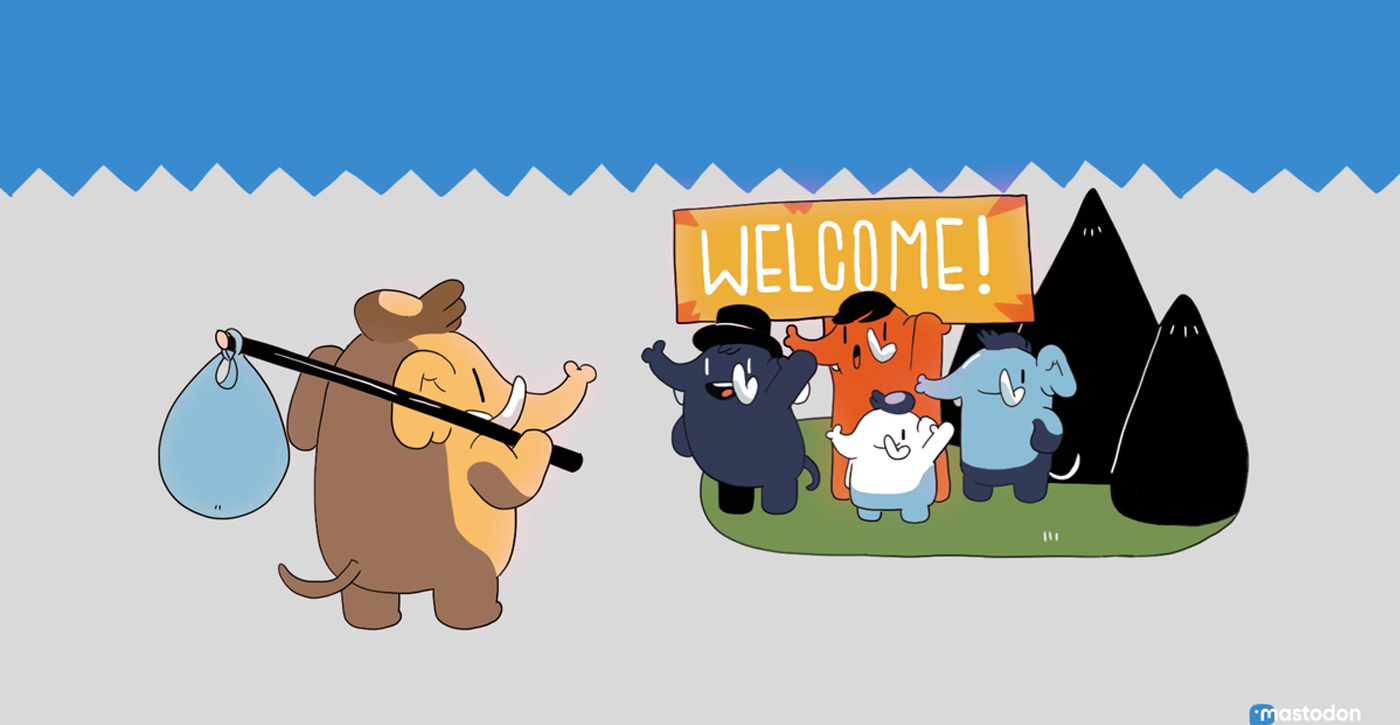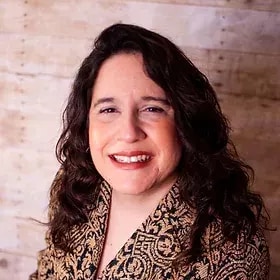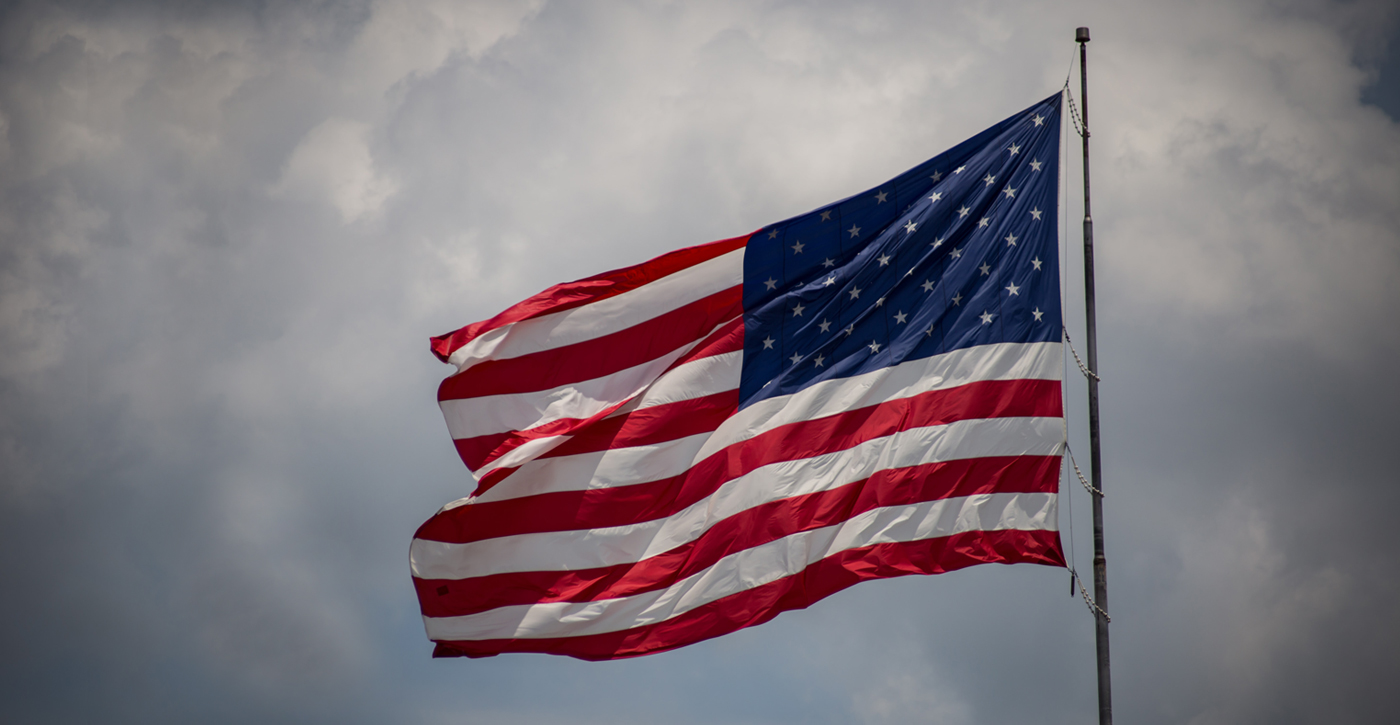Some Quakers frustrated by scandal, commercialism, and negativity have left the social networking giants Twitter and Facebook and migrated to Mastodon. Founded in 2016 by German software developer Eugen Rochko, Mastodon is a decentralized social network that uses open source software, according to its about page. Users fund the network through donations via Patreon. Individuals and companies can also sponsor Mastodon through its own platform.
“I stopped using Twitter maybe a year or two ago. It just became a source of anxiety and distress,” said David Coletta (he/him), who attends Three Rivers Worship Group, which meets—mostly virtually—under the care of Fresh Pond Meeting in Cambridge, Massachusetts. Coletta also left Facebook in response to the Cambridge Analytica scandal disclosed in 2018.
“I have a ministry at the intersection of technology and Quaker worship,” Coletta said. He hosts an instance on Mastodon at http://quakers.social, which he considers a spiritually significant project. An instance is an independently run server using a version of the Mastodon software.
Cambridge Analytica, a London-based political consulting company, worked for the 2016 campaign of former president Donald Trump to collect private data on Facebook users without their permission. The company used the data to create psychological profiles of voters to enhance targeting of political advertisements.
When billionaire Elon Musk purchased Twitter for $44 billion in October 2022, he cut half the staff of 7,500 employees and laid off 4,400 independent contractors. The positions lost included many content moderators. One person who lost his job at Twitter was one of Wess Daniels’s best friends.
“I’m not a big fan of billionaires,” said Daniels, the William R. Rogers director of Friends Center and Quaker studies at Guilford College in Greensboro, North Carolina. Daniels does not believe social media sites should be completely privately owned. Starting in 2007, he previously used Twitter due to its strong moderation tools. He still has an account but almost completely stopped using it when Musk took over. He hopes that someone will eventually revitalize the social network.
The Cambridge Analytica imbroglio and the increasingly negative tenor of discussions drove Daniels away from Facebook. He also noted that users’ search results in web browsers contribute to Facebook algorithms even when they are not logged into the social network.
Other Quaker Mastodon users also prefer a social network that is not owned by a person or company.
“It’s not a single platform operated by a single business or person. It’s more meant for the people rather than for a corporation,” said Pax Ahimsa Gethen (they/them) of San Francisco (Calif.) Meeting.
Jonah Sutton-Morse, of Concord Meeting in Canterbury, New Hampshire, also became more active on Mastodon after Musk took the helm at Twitter. Sutton-Morse observes Liberal and Conservative Friends interacting positively on Mastodon. His Mastodon presence is more Quaker-oriented than his Twitter presence was.
“I am more consciously being Quaker and seeking out Quakers, and so I am interacting with more Quakers, which is fun,” Sutton-Morse said.
Conversing with Quakers from different theological backgrounds can enrich one’s own understanding, said Sarah Allen (she/her/they/them), of Friends Meeting at Cambridge (Mass.). Allen cited a recent Mastodon discussion about what Friends mean when they say there is that of God in everyone. Some theologically conservative Friends Allen has connected with on Mastodon believe that there is a part of each person that can listen to God. Some theologically liberal Friends, with which Allen was more familiar, believe that an actual part of God is inherent in each person.
“It was interesting to have a rich theological conversation on social media,” Allen said.
Quakers have also had thought-provoking Mastodon exchanges on ethical questions about prioritizing policies that benefit future generations more than people alive now, said Denise Marshall, of Polmont Meeting in Central Scotland.
Mastodon aligns more closely with Quaker values than other social networking sites do because it is not commercialized, Daniels said. Mastodon does not have any advertising and does not operate using an algorithm. Algorithms in other social media networks determine and sort the posts a user sees on their main feed based in part on how much they interact with certain content-producers. The content Mastodon users see is not necessarily the most extreme or inflammatory, as it is on Twitter or Facebook, according to Daniels.
Coletta likes the more authentic information exchange that Mastodon offers due to its lack of an algorithm.“On Twitter, there’s an algorithm pushing things at you,” Coletta said.
Unlike other social media platforms, Mastodon has a slow mode option in which a feed does not change until the user manually refreshes it, Daniels pointed out. Facebook, for example, continuously loads content. Mastodon is less addictive than other social media because of the slow mode option and because it lacks an algorithm, according to Daniels.
“I really like the slow mode. It sounds very Quakerly,” Daniels said.
Coletta considers Mastodon more person-centered than Twitter or Facebook because it doesn’t have any ads and a billionaire does not own it. Daniels noted that each instance has a moderator who can uphold community standards. Moderators can block access if people post things that violate community expectations. One of the rules on Eugen Rochko’s original Mastodon server is “No racism, sexism, homophobia, transphobia, xenophobia or casteism,” according to the social network’s about page. Mastodon recommends content warnings to alert users to potentially upsetting posts. The network requires image descriptions to increase accessibility for those with visual impairments.
Gethen, who identifies as agender, queer, and Black, noted that users on some instances can be overtly hostile to members of traditionally marginalized communities. Gethen likes that administrators of other instances can block those posting offensive content.
Mastodon users tend to emphasize positive posts, making the network’s culture less inflammatory than that of Twitter. “Let’s boost things we like rather than retweeting things that we don’t like,” Marshall said.
When getting started on Mastodon, users should look for communities with which they feel an affinity, suggested Coletta. They can also search for individual users they know. When a new user joins an instance, they will see a lot of posts on their chosen topic. It is easy to move from one instance to another, Coletta said.
To grow Quakerism in the twenty-first century, Friends must establish a presence where young people communicate with each other, according to Coletta. This desire is one of the reasons he decided to create and host a Mastodon instance for “Quakers and other folks who feel like they are part of the world of Quakers,” as described by the instance’s about section.
Updated 2/27/2023 to clarify that the rules quotes are specifically for Rochko’s Mastodon.social server.





Thanks for including me in your piece. Please note that the rules quoted from the “about” page appear to be for the instance https://mastodon.social specifically. Each Mastodon instance makes and enforces its own rules about what content and conduct is permitted.
Thanks for pointing that out, Pax, we’ve clarified it in the article.